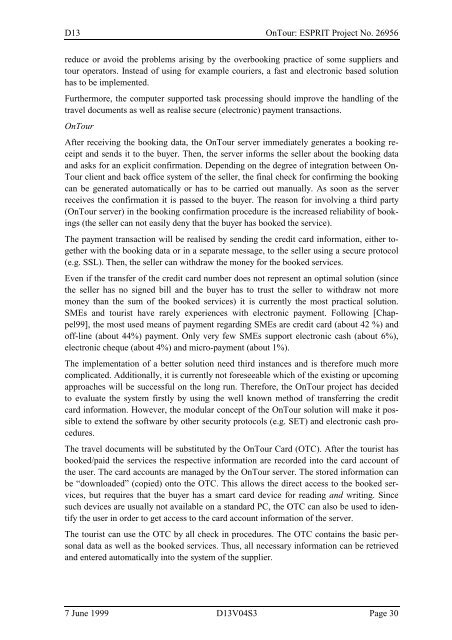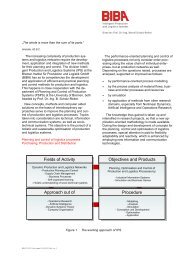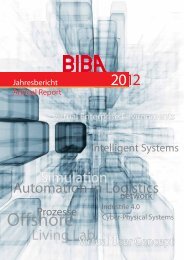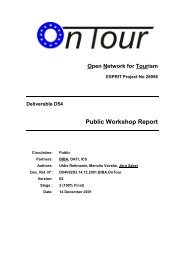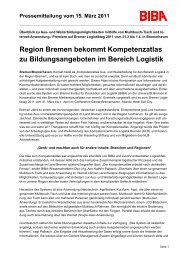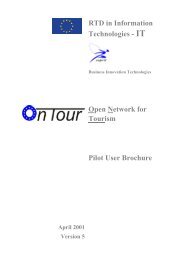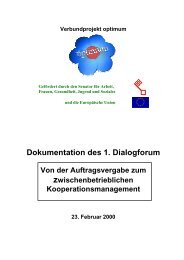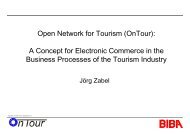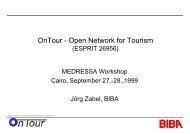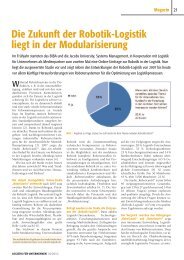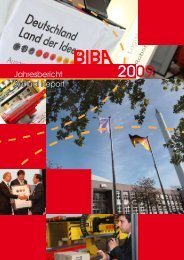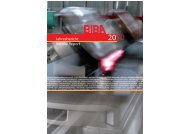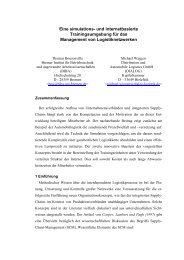PDF Version - Biba
PDF Version - Biba
PDF Version - Biba
You also want an ePaper? Increase the reach of your titles
YUMPU automatically turns print PDFs into web optimized ePapers that Google loves.
D13 OnTour: ESPRIT Project No. 26956reduce or avoid the problems arising by the overbooking practice of some suppliers andtour operators. Instead of using for example couriers, a fast and electronic based solutionhas to be implemented.Furthermore, the computer supported task processing should improve the handling of thetravel documents as well as realise secure (electronic) payment transactions.OnTourAfter receiving the booking data, the OnTour server immediately generates a booking receiptand sends it to the buyer. Then, the server informs the seller about the booking dataand asks for an explicit confirmation. Depending on the degree of integration between On-Tour client and back office system of the seller, the final check for confirming the bookingcan be generated automatically or has to be carried out manually. As soon as the serverreceives the confirmation it is passed to the buyer. The reason for involving a third party(OnTour server) in the booking confirmation procedure is the increased reliability of bookings(the seller can not easily deny that the buyer has booked the service).The payment transaction will be realised by sending the credit card information, either togetherwith the booking data or in a separate message, to the seller using a secure protocol(e.g. SSL). Then, the seller can withdraw the money for the booked services.Even if the transfer of the credit card number does not represent an optimal solution (sincethe seller has no signed bill and the buyer has to trust the seller to withdraw not moremoney than the sum of the booked services) it is currently the most practical solution.SMEs and tourist have rarely experiences with electronic payment. Following [Chappel99],the most used means of payment regarding SMEs are credit card (about 42 %) andoff-line (about 44%) payment. Only very few SMEs support electronic cash (about 6%),electronic cheque (about 4%) and micro-payment (about 1%).The implementation of a better solution need third instances and is therefore much morecomplicated. Additionally, it is currently not foreseeable which of the existing or upcomingapproaches will be successful on the long run. Therefore, the OnTour project has decidedto evaluate the system firstly by using the well known method of transferring the creditcard information. However, the modular concept of the OnTour solution will make it possibleto extend the software by other security protocols (e.g. SET) and electronic cash procedures.The travel documents will be substituted by the OnTour Card (OTC). After the tourist hasbooked/paid the services the respective information are recorded into the card account ofthe user. The card accounts are managed by the OnTour server. The stored information canbe “downloaded” (copied) onto the OTC. This allows the direct access to the booked services,but requires that the buyer has a smart card device for reading and writing. Sincesuch devices are usually not available on a standard PC, the OTC can also be used to identifythe user in order to get access to the card account information of the server.The tourist can use the OTC by all check in procedures. The OTC contains the basic personaldata as well as the booked services. Thus, all necessary information can be retrievedand entered automatically into the system of the supplier.7 June 1999 D13V04S3 Page 30


